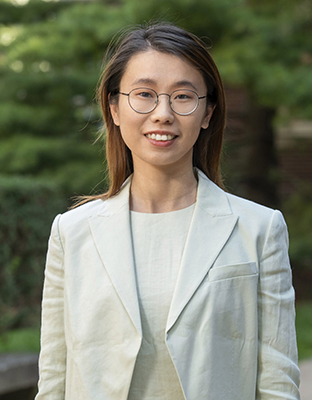Oct 20, 2023
Something ventured, nothing gained — The pitfalls of alumni investing
Alumni networks are a useful tool. Among the many benefits, they connect new graduates with experienced professionals who can help them get a foot in the door, and they can link alumni investors with promising startups with potential to be the next big thing. When it comes to venture investing, however, Gies assistant professor Can Huang says that alumni networks can be a double-edged sword.

“On the one hand, these alumni networks give more and better information to the venture capitalist, helping them make better decisions,” says Huang, who studied alumni networks as part of her job market paper. “But on the other hand, those alumni networks can induce some homophily-based preference. So, for example, if I’m from Stanford, probably as a venture capitalist, I will prefer to invest in Stanford startup founders.” But according to Huang, that could lead to less than stellar returns.
When it comes to campus startups, a significant amount of investment is provided by alumni. In her paper, “Networks in Venture Capital Markets,” Huang found that venture capitalists invest in alumni startups 8.21% more than they do in non-alumni startups. And the effects are even stronger in riskier markets and for founders who are underrepresented minorities, women, or from less prestigious universities. However, her research also showed that those investments can come with steep downside, inducing a 22.93% increase in failure rates and a 17.53% decline in acquisition rates.
Ultimately, says Huang, this means that venture capitalists should think more carefully about their networks and realize that they might have a preference toward alumni-connected firms that could lead them to make poor investments.
Of course, that’s not to say that all alumni investing is bad. It’s quite possible to support innovation unfolding at your favorite school and earn a solid return. You just have to be disciplined and make sure you’re investing in a company with a solid business plan, because in the end, it's the fundamentals and not the “alma” that matters.
Huang approached her career search with a similar sense of discipline, looking at many business schools in and around Chicago, where her partner already had a job. She applied to several, but Gies was always her top pick, for a long list of reasons.
For starters, she liked the diversity in terms of the fields represented by the faculty. “A lot of finance departments have very specific areas of interest, such as banking,” said Huang. “But here, they want people from different fields, so we have a very complete department.” And that opens the door to interesting collaborations.
“My main interest is in entrepreneurship and private equity,” said Huang. “That’s a relatively small field, so it’s not that easy to find interests that match. But here, I find that people are open to any research area. On my fly outs, I could already imagine how inspiring and interesting it would be to work with them and do research together.”
As a researcher, she liked the fact that Gies had the resources to support her work, which is very data intensive. And as a teacher, she was excited by the high caliber of students drawn to the program. “The students here are really smart and some of them have backgrounds in computer science and math,” said Huang. “So, I really look forward to interacting with them and convincing them that finance is a very interesting subject.”
Huang, who earned a PhD in finance and real estate at the Haas School of Business at the University of California-Berkeley, said that much of her exposure to Gies came through a connection with one of its faculty members, Jialan Wang.
“She’s actually a classmate of my advisor,” said Huang, “so we kind of have a relationship.” That bond was strengthened when Wang made a presentation at Berkeley. Huang found her research interesting, and the two had a chance to talk about all the exciting things happening at Gies.
Now that she’s here, Huang hopes to be a similar source of inspiration for her students. Currently, she’s teaching FIN 321: Advanced Corporate Finance, where she encourages students to see the practical use of what they learn. “It’s not a hard thing. It’s not a math thing. It’s a real-world thing that you can use after class, whether you’re getting a mortgage or dealing with a student loan,” said Huang.
She always wants her students to become comfortable in group projects and form good connections with their classmates. “I think that’s a very important part of teaching; it’s not just about accumulating knowledge. It’s also about connections and creating networks with your classmates, because in most cases,” said Huang, bringing the conversation full circle, “networks are a very good thing.”
